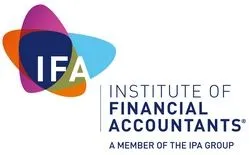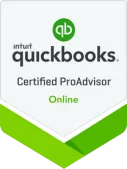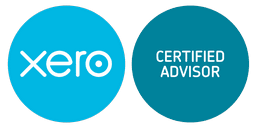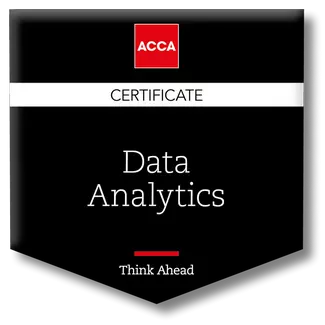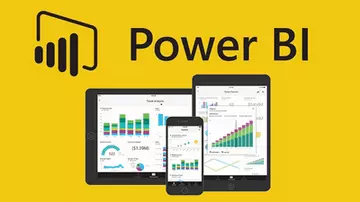Business Expenses Guide for Tax

Following is generic guideline on legality and documentation required for some of the common expenses a business (mostly ltd companies) can claim on tax return against taxable profit. Obvious expenses like salaries etc. not discussed. (Last updated: 17/10/2022)
List of Expenses
- Few Important facts
- Childcare expenses
- Client entertainment expenses (PR expenses)
- Clothing and Evening wear expenses
- CPD and Training Courses
- Director loan
- Donations to charity from your company
- Employee loans
- Food and drink
- Home internet for business
- Home Office Rent
- Hotel accommodation
- Insurance
- Laptops and computers
- Medical treatment (eye test expenses)
- Pension contributions
- Personal Car and travel expenses
- Personal Telephone and Mobile for company
- Professional fees
- Repairs to property
- Shed Office
- Staff entertainment expenses (Annual staff party expenses)
- Trivial benefits
- Use of Home
- Vehicle Insurance
- Website costs
Important Notes
Assumption for company expenses is of single employee and on accrual basis by default unless stated otherwise.
Difference between Revenue and capital expense
Capital Items are generally assets which last more than a year and are not for resale as stock e.g. computer, office desk, shelves, printer etc. with monitory value of say £500 and above.
Revenue items are not capital items, mostly daily operation low value items, e.g. ink for printer, paper, stationary, postage etc.
Allowable Expense Test
All revenue expenses must have been incurred “wholly and exclusively” for the purposes of running the business to be allowable for tax purposes. Expenses for personal purposes are NOT allowable. Partial business expenses are added back to taxable profit as private use % and VAT reclaim if any is also restricted.
Business Invoice
Where applicable Invoices should be in the name of business, this is crucial element for expense to be claimed against taxable profit of companies. You need to keep business documentation for HMRC inspection for around six years from the end of the accounting period. If an invoice is not in the name of company OR Company is not directly paying for expenses then there can be P11D compliance to be addresses.
What is P11D?
A P11D is a form submitted to HMRC yearly where an employers list any expenses or benefits given to directors or employees. It includes items or services such as private healthcare, company cars or loans etc. The P11D form is designed to inform HMRC of any taxable benefits that must be included in your personal self-assessment tax return. There may also be National Insurance contributions to me paid on them by your company as an employer.
Childcare expenses
Childcare costs are not allowable business expenses.
Client entertainment expenses (PR expenses)
Entertaining clients i.e. taking them out to lunch is not allowed expense for tax purposes but company can pay for it.
Clothing and Evening wear expenses
Only protective clothing that’s necessary for your job, such as a high-visibility jacket, or a uniform that can only be worn at work, a t-shirt with the company logo on it are allowed as expense, Keep in mind company has to report these to HMRC on form P11D but there’s no extra tax for you or for the company to pay.
CPD and Training Courses
Personal development (CPD course), professional body subscription, any other educational course costs including books etc. that directly applies to employees job at company business are allowable expenses as long as they directly relate to company's line of work and the income generated for the business.
If you let a member of staff pay for a training course through a salary sacrifice scheme, you won’t be able to claim that cost as a business expense.
Director loan
When a director takes money out of company as loan (not salary, reimbursement of expenses, dividends or credit balance withdrawal), certain legal obligations kick in, for details please see HMRC guideline on loan to directors
Donations to charity from your company
Generally all donations made to registered charities or community amateur sports clubs are allowable costs.
Employee loans
Providing ‘beneficial loans’, which are interest-free, or at a rate below HMRC’s official interest rate are not allowable expense for tax purposes and there are other reporting requirements, for details please visit HMRC guideline on loan to employees.
Food and drink
- Food and drink on overnight business only trips (within reasonable measures)
- Tea, coffee and biscuits at office for all staff.
- Free meals at a canteen available to all employees. No extra tax and National Insurance payable.
Home internet for business
If broadband contract is not in the name of company and payments to internet provider are not made by company either then you can claim back from the company the cost of your business use of your home internet access and a percentage of the line rental.
Example: Your personal home broadband cost is £30 pm, your business usage is say 25% then you can claim £7.5 pm (30 x 25%).
Home Office Rent
Provided you have rental agreement in place between you and your company, a proportion of your rent can be claimed. You should include this rent as rental income on your own personal tax return.
Hotel accommodation
Provided you stayed away from home not near your permanent workplace for business purposes / appointment, you can claim hotel cost including if you were at a temporary workplace, meaning somewhere you expect to be working for less than 40% of your time for the next 24 months.
Insurance
Business insurance policies should be in the name of limited company to be claimed as allowable expenses and use should be strictly for business purposes. Business insurances including public liability insurance, employers liability, professional indemnity insurance and contents insurance are all allowable expenses.
Laptops and computers
This is typical allowed capital expenditure category and there is no P11d as long as private use is very insignificant
Medical treatment (eye test expenses)
If employees use a computer monitor or another screen purely for work purposes, they are entitled to receive regular eye examinations and companies are allowed to claim the cost of those exams including prescription for glasses or contact lenses.
Pension contributions
Company is allowed to contribute to its own pension scheme for employees. Company can contribute to private pension for director employee as allowed expense on cash basis (accrual for this is not allowed). Be aware that there’s a £40,000 limit on how much money you can add in tax-free to a pension scheme via your business or personally.
Personal Car and Travel Expenses
This excludes everyday commute between your home and permanent workplace.
Flight cost are allowed provided you keep records of the purchase and be able to prove that the flight costs were 100% work-related, any personal element in this will make whole flight cost disallowed.
Example: You travel to New York for business meeting and extend stay for weekend trip OR you go visit your friends or family as extended trip, whole cost is disallowed.
As an employee of company if you use your personal car or van (excluding commute) for business travel or to a temporary place of work then you can claim the following rates as limited company expenses.
- Car and vans – 45p per mile for the first 10,000 miles and then 25p for every mile thereafter.
- Motorcyclists – 24p per mile
- Bicycle – 20p per mile
- Road toll fees
- Congestion charges
- Public transport, including train, bus, air and taxi fares
- Vehicle Insurance, repairs and servicing (business proportion)
Parking charges for business journey paid by company or reimbursed to employees are allowed BUT If you give your employees money to pay for parking charges, that counts as employee earnings. That means you’ll need to deduct and pay PAYE and National Insurance on that money using payroll.
Personal Telephone and Mobile for company
Commercial tariff based business mobile/telephone contracts are allowable expenses for limited company as long as they are used solely for business purposes and are not part of salary sacrifice.
Personal mobile/phone contracts need to separate the business and personal use and claim the business-related expenses only. If employees are reimburse in full on personal contract then company will still need to deduct and pay Class 1 National Insurance and PAYE through payroll (this becomes P11d item).
Professional fees
Legal and professional fees including accountancy are allowed except if it is part of capital expenditure. Under some specific circumstances it is not allowed. This link to HMRC site should help.
Repairs to property
Repairs on property owned by business are allowed (revenue in nature). If a personal property repair relates solely to the part that’s used for business only, that is allowed as well.
Shed Office
Shed or garden office is although a moveable item but it counts as a structure from which your business operates rather than an item of equipment, therefore Installing (including delivery charges) or building cost are not allowed for tax purposes.
Fixture, fitting and equipment (FFE) rules apply to items inside shed for business use. Cost of thermal insulation fitted or built into the office also qualifies for capital allowances even where it forms part of the structure. Repairs to and utilities for Shed are allowable expenses. VAT can be reclaim on all of the above items if applicable.
Staff entertainment expenses (Annual staff party expenses)
Employees entertaining (not clients) is allowable for tax purposes provided following qualify conditions are met:
- It is an annual event (such as a Christmas party)
- It is open to all team members
- It costs less than £150 per guest
If any of these three conditions aren’t met, then the whole cost of the event becomes a taxable benefit.
Trivial benefits
Trivial benefits are allowed for employees including directors provided all of below conditions are fulfilled
- It’s not part of employment contract
- It’s not a reward for performance or work
- It cannot be cash or a cash voucher
- cost has to be £50 or less.
Use of Home as office (Work from home)
It depends if your business is a company or not and are you claiming flat rate or calculated method.
Flat rate for use of home as office (no record keeping required)
If you are self-employed please visit this Flat rate home office guide from HMRC.
If it is company then as an employers, from 6 April 2020 you can agree to a payment of £6 per week or £26 per month for monthly paid employees to working regularly at home without the employer having to justify the amount paid.
Actual extra cost incurred for business purposes (documentation required)
Being a self-employed or Employee of company (not sole director), you’ll need evidence such as receipts, bills or contracts to get tax relief based on the rate at which you pay tax. More details here
Important to Note: Sole director is not sole trader. Directors (and employees) can’t claim back any proportion of rent, mortgage interest, or council tax from their companies – as these costs would have been paid personally anyway.
Following guideline on work from home actual cost is for Sole Traders only
The golden rule is that any costs you claim for must have been genuinely incurred in the course of running your business. When working out how much of your household expenditure could be fairly reclaimed for business use, HMRC states: “It will normally be appropriate to apportion these expenses by area and time.”
In order to establish the proportion of household costs used by the business, you will need to work out the percentage of your property which is used for business purposes, what proportion of a utility bill that can be apportioned to business use (e.g. lighting or heating), and for how long each day the service is used for solely business reasons (for example, the business area only needs to have lighting for 50% of the day).
What can a sole trader claim for under use home?
Some of the most common household expenses you can claim a proportion of include:
- Mortgage interest (you can’t claim for the capital repayment element of a mortgage)
- Rent
- Council Tax
- Water
- Electricity
- Heating
- Home insurance (if it also covers your business)
- Repairs
- Cleaning costs
For a further details please read HMRC guideline
Vehicle Insurance
Vehicle insurance on a company owned car is a deductible expense.
Website costs
It depends on reporting framework, more details on my other website at bottom of web designing page

